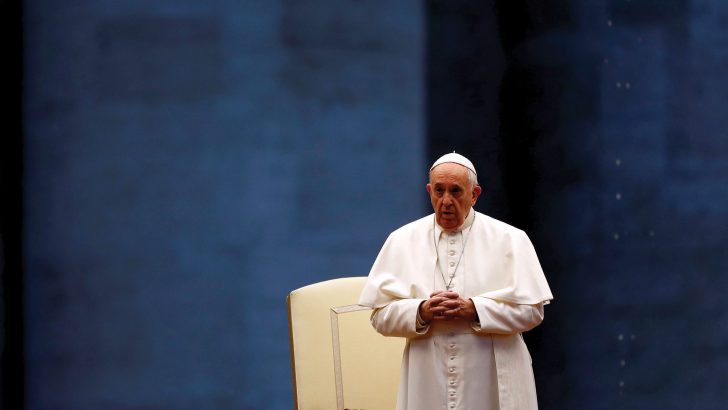Francis is willing to risk confusion for the sake of inclusion, writes Michael Kelly
The Pope’s backing for legislation for civil unions for gay couples is a big deal. It’s also a significant shift away from the policy of his immediate predecessors who warned Catholics that opposing such unions was an obligation.
It’s important to understand that Francis sees it solely in the context of the civil realm and his previous support in Argentina was that such unions open to anyone living together (such as siblings or a mother and son) should also be open to gay couples.
The Pope is nuanced in his stance and draws a radical distinction between the idea of legal protection for gay couples – such as inheritance or the right to be at a hospital bedside – and marriage which he insists can only be between one man and one woman. During his time in Argentina, he led the Church’s opposition to gay marriage while arguing that civil partnerships represented a good way forward.
Favour
From the moment of his election in 2013, Francis signalled that mercy would be at the heart of his papacy. That’s why, for example, he is in favour of giving Holy Communion to divorced and civilly remarried Catholics in certain limited circumstances. It’s also why he favours a Church that can also be a home for people who cannot reach the moral standard expected of Catholics.
He has sought to soften the official pronouncements on many issues because he knows that language matters. Generations of gay Catholics have spoken out about how they have felt hurt and alienation not so much because the Church doesn’t approve of gay sex, but because it has been described as ‘intrinsically evil’ or ‘objectively disordered’. Such terminology made sense to medieval scholastics in the context of natural law, the reality today is that while theologians and philosophers might try to explain the deeper meaning of such words they strike most people as callous.
Francis learned in his native Argentina the cruel reality faced by many young gay people who found themselves rejected by their families as a result of a toxic mix of machismo and Catholicism. He worked with them and learned to understand that their hopes and dreams were the same as everyone else’s. That’s why he insisted that “homosexual people have the right to be in a family. They are children of God.”
Lots of people both inside and outside the Church will wonder what the fuss is all about”
“You can’t kick someone out of a family, nor make their life miserable for this. What we have to have is a civil union law; that way they are legally covered,” the Pope said in his latest intervention.
You can’t please everyone as Pope John Paul II didn’t, Benedict XVI certainly didn’t and Francis doesn’t either. His words will bring comfort to many, disillusion others and perplex some.
Francis’ diagnosis of the paralysis in the Church is that the language no longer speaks to many people. What’s more, when the Church does pronounce on issues like homosexuality the language is often strident and grates with contemporary culture. The Pope thinks and acts like the Church can do better: that it can teach that homosexual acts are a sin while believing that a loving couple should be protected; that it can teach that marriage is for life while not punishing people whose marriages have broken down.
It’s a high wire act and he risks upsetting both conservatives who think he’s giving away the shop and liberals who think he is full of bluster.
Of course, lots of people both inside and outside the Church will wonder what the fuss is all about. Many practising Catholics voted for same-sex marriage here in 2015 without a second thought. Polls from abroad indicate that Catholics in other countries are likewise equally unperturbed. But, make no mistake: in a Church that thinks in centuries, Francis is sending an important message of inclusion. Crucially at a time when some legislators in Uganda and Nigeria are citing the Bible in their campaign to punish homosexual acts with the death penalty, Francis is saying a definitive ‘no’ to victimisation and discrimination.
At the end of the day in a world that loves black and white, Francis sees life in the grey areas. Those who see it as a watershed moment in Church teaching on human sexuality will be disappointed. Equally those who charge Francis with crossing a theological or moral line are also wrong.


 Michael Kelly
Michael Kelly Photo: CNS
Photo: CNS 